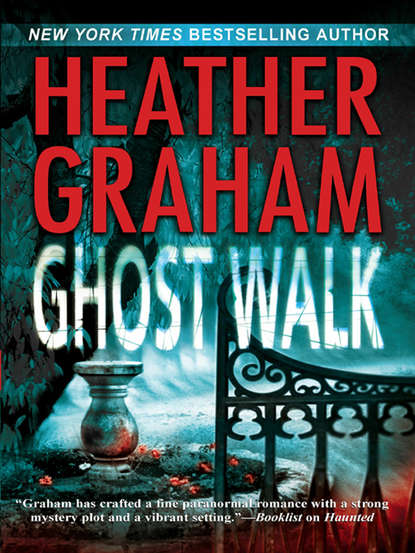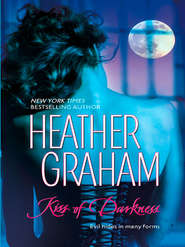По всем вопросам обращайтесь на: info@litportal.ru
(©) 2003-2025.
✖
Ghost Walk
Автор
Год написания книги
2018
Настройки чтения
Размер шрифта
Высота строк
Поля
No one noticed. A bunch of uniforms were heading out, talking as they went.
Massey looked up, frowning. “Politics,” Joulette told him. “Going to provide security for some rally.”
Massey arched both brows. Joulette shrugged. “It’s a hot race for that senate seat,” he explained. “I haven’t seen this much activity in a coon’s age.”
“Politics. In Louisiana. There’s a cesspool for you.”
“Hey!” Joulette protested. “There are a lot of good guys out there, trying to make a difference. Not to mention right here in the department.”
Actually, Massey agreed. There were plenty of good men in the department. And he hated the fact that Louisiana politics had too often been on the shady side. It was a good state. He loved New Orleans with a passion. He shrugged. “Problem is, no two guys seem to have the same opinion when it comes to what constitutes the greater good.”
“Well, we’re not politicians. We’re cops. And we’ve got a dead fed on our hands.”
“Right,” Massey said.
“Hey, Massey, Joulette.” It was Robinson, a street cop who had spent some time in forensics.
“What’s up?” Joulette asked.
“Purse snatcher,” Robinson said. Young and wiry, he was a good cop, capable of running down perps who were convinced they could outrun any of the parish’s beignet-eaters.
Massey cleared his throat. “Um…wrong fellow to get after a purse snatcher,” he said.
Robinson grinned. “Hey, I know.”
“You mean you didn’t run the guy down?” Joulette asked him.
“Naw, I got the call too late.”
“So…?” Massey prompted.
“This is just curious. Maybe nothing. But I thought that I’d show you.”
Robinson produced the small sketchbook he’d been carrying. He was a good artist, and the sketch he’d produced appeared to be a likeness of Tom Garfield, their dead FBI agent.
Frowning, Massey stared hard at the picture. “What’s this?”
“The woman whose purse was snatched told me that she never saw the man who swiped her bag, but she said she’d seen a suspicious-looking down-and-outer right before it happened. On Bourbon Street. I asked her to describe the guy. And this is what I got. A picture of your corpse.”
“Robinson, you’ve seen the pictures of Garfield. You just drew him ’cause those images were in your mind,” Joulette said.
“No. The woman told me this was the guy she saw—to a T.”
“Couldn’t have been. If this purse snatching just happened, Garfield was already dead,” Massey said more gently. He liked Robinson.
“The woman swears up and down that this is who she saw.”
“So our fed is dead but snatching purses?” Joulette scoffed.
“Maybe he’s got a look-alike running around the city, that’s what I’m suggesting,” Robinson said. “Who knows how or why, but it could mean something. I just thought you two should know.”
“Did you show the boss?” Massey asked.
Robinson nodded. “Weird, huh?”
“Thanks,” Massey told him. “Hey, can I keep the sketch?”
“I’ll make you a copy,” Robinson assured him. “The boss already has one.” He gave Joulette an aggravated stare and moved on.
“Everybody’s just got to get in on the act, huh?” Joulette said.
Massey shook his head. Robinson was a bright officer, and the sketch was disturbing.
He sighed.
It was going to be a hell of a long night.
Brent Blackhawk fought the dream, because he knew what the dream meant. But it was too strong for him.
First there was the mist.
Then there was his grandfather.
Finally he was back on the day when they had gone to the battlefield where Custer had made his last stand. Where the combined forces of many tribes had conquered.
As a child, he had seen them.
There had been awful moments when he had felt sheer terror. He had seen the soldiers and the warriors. Heard the savage war cries. The shouts of the cavalry.
The cries for mercy.
He had seen the agony and fear, tasted the acrid scent of gunpowder.
He had kept silent, had not corrected the tour guide. It would be wrong for a little boy to correct his elders, even though he knew what they did not. He had listened to the tours; he had gone to the encampments. He had sat with his grandfather in a sweat lodge, and the old men and the younger ones had discussed how Custer’s last stand had in reality been the last stand of the American Indian.
Later his grandfather had talked to him. He had known.
“It’s all right,” he had assured him. “It’s all right.”
“Is it because I’m a quarter Indian?” he had asked.
And his grandfather had taken him into his arms. “Well, boy, I don’t know. Your mom, now, she was what they called a truly lovely lass from the old country. And her people are known for being what they call a bit ‘fey.’ What matters is that you have a gift, and you have it for a reason. Perhaps in time you’ll see that it’s not frightening, and you’ll know why it’s been given to you. And that it’s good.”
Sometimes, he still wondered when the “good” would kick in. He had learned to use it, just as a policeman learned to use his weapon. There were times when he knew that his help changed lives, even made them bearable again.
But as for himself…
In the dream, he groaned.











